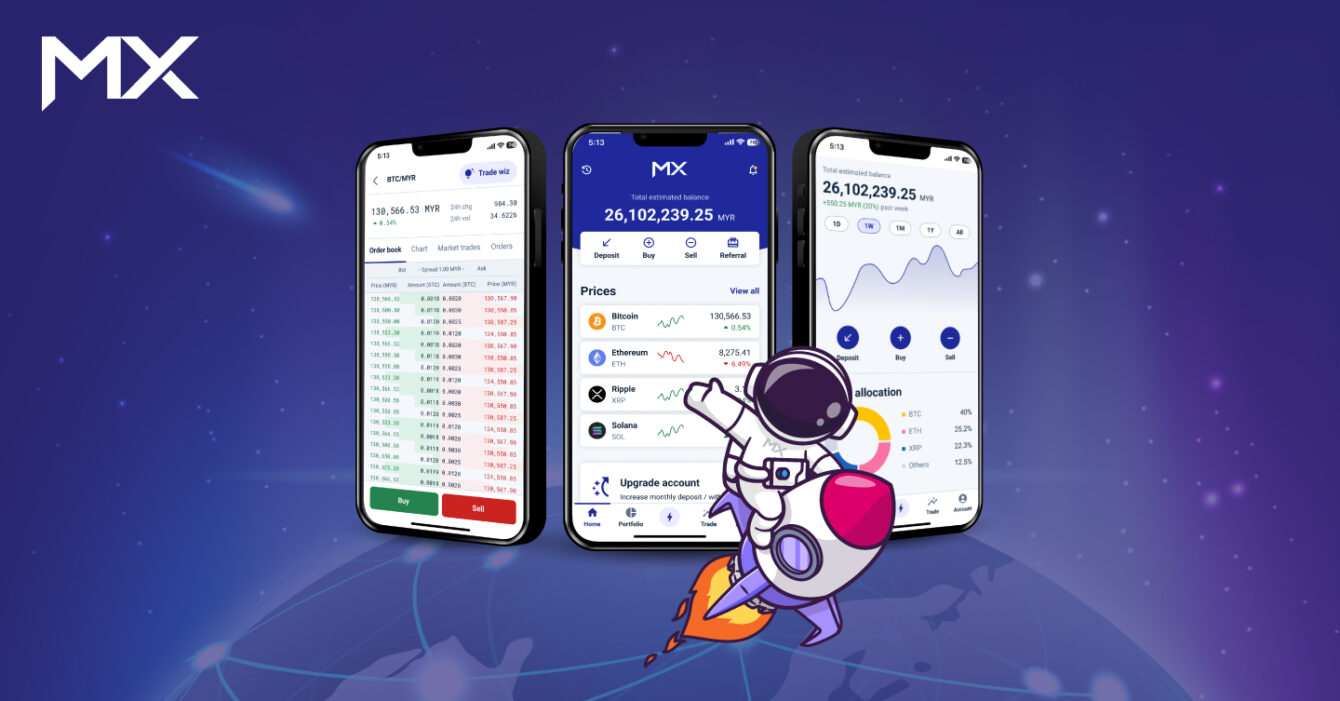This article explores the world of cryptocurrency investment. It explains what cryptocurrency is and the risks involved, but also discusses the potential rewards. It offers guidance for beginners on how to get started and make informed decisions in this exciting but volatile market.
What is Cryptocurrency?
Definition
Cryptocurrency is a digital or virtual currency that uses cryptography for security, making it nearly impossible to counterfeit or double-spend. Most cryptocurrencies operate on decentralized networks based on blockchain technology—a distributed ledger enforced by a disparate network of computers. A defining feature of these currencies is that they are generally not issued by any central authority, rendering them theoretically immune to government interference or manipulation.
Key Characteristics
1. Decentralized Nature: Unlike traditional fiat currencies controlled by central authorities, cryptocurrencies are processed and validated by a distributed and open network. This decentralization means no single entity has control, reducing potential systemic failures and increasing security.
2. Irreversible Transactions: Once a transaction is confirmed, it cannot be reversed. This immutability is ensured by blockchain technology, where all transactions are permanently recorded, making it extremely difficult or impossible to alter past transactions.
3. Anonymity and Security: Users can transact anonymously through digital identities and wallets. Cryptocurrencies use systems like private and public keys to authenticate transactions, ensuring that only the owner of the private key can initiate transactions, thus offering a high level of security.
4. Limited Supply and Scarcity: Most cryptocurrencies have a fixed supply capped by their underlying algorithms, contrasting with fiat currencies, which can be printed by central banks at will. This scarcity potentially leads to deflationary characteristics, increasing in value as demand rises .
5. No Need for Permission: Cryptocurrencies do not require permission from any authority to be used. Users can simply download the necessary software and start transacting, which provides a high degree of freedom and eliminates the need for intermediaries like banks .
6. Speed and Global Reach: Transactions are processed almost instantly, regardless of the geographical location of the parties involved. This global reach makes cryptocurrencies an appealing option for international transactions without the need for currency exchange or transaction fees .
7. Non-reversible Transactions and User Responsibility: Due to the lack of a central governing body, once a transaction is initiated and confirmed, it cannot be reversed. This places a greater responsibility on users to ensure accuracy in their transaction details.
Cryptocurrencies represent a shift from traditional financial systems, offering a platform for secure, private, and global transactions. While they present a new set of challenges and risks, their adoption continues to grow, reflecting a significant shift in how transactions might be conducted in the future.
Understanding the Risks of Crypto Investment
Volatility
The cryptocurrency market is notorious for its high volatility. Significant price swings are a regular occurrence, with assets like Bitcoin experiencing drastic fluctuations within short periods . This volatility is driven by various factors including market sentiment, speculative trading, and sudden regulatory news. The unpredictable nature of these markets can lead to substantial financial gains or losses, making it a high-risk investment arena.
Security Concerns
Security is a paramount concern in the crypto investment space. Investors face risks from hacking and phishing attacks aimed at stealing private keys and accessing digital wallets. The decentralized nature of cryptocurrencies, while offering advantages, also means there is no central authority to intervene in case of theft or fraud. High-profile security breaches have led to substantial financial losses, underscoring the importance of robust security measures and careful management of digital assets.
Regulatory Uncertainty
The regulatory landscape for cryptocurrencies remains unclear and is continuously evolving. This uncertainty can deter investment as potential legal challenges could affect market stability and the legality of certain crypto activities. Investors and companies face risks from a lack of clear guidelines, which can lead to compliance issues and potential legal battles. Proactive regulation is needed to provide a stable framework for the cryptocurrency market and protect investors from unforeseen legal challenges.
Market Manipulation Risks
Market manipulation is a significant risk in the cryptocurrency markets. Tactics such as wash trading, pump-and-dump schemes, and price manipulation by large holders, known as whales, can distort market prices and trading volumes. These manipulative practices not only mislead investors but also undermine the integrity of the market, leading to mistrust and potential financial losses for unsuspecting traders. Regulatory bodies are striving to combat these practices by enhancing market surveillance and enforcing stricter regulations.
Cryptocurrency investments, while offering potential high returns, come with a range of risks that investors must navigate carefully. Understanding these risks is crucial for anyone considering entering the crypto market.
Exploring the Rewards of Crypto Investment
High Return Potential
Cryptocurrency investments are known for their high return potential, primarily driven by market dynamics and technological innovations. Cryptocurrencies, such as Bitcoin, have been shown to experience substantial price increases, reflecting significant returns for early investors. The value of cryptocurrencies can increase dramatically due to factors like limited supply, as seen with Bitcoin’s fixed mining limit, which promotes value preservation through scarcity.
Decentralized Finance (DeFi) Opportunities
Decentralized Finance, or DeFi, represents a major shift in the financial sector by leveraging blockchain technology to conduct financial transactions without traditional intermediaries. This ecosystem allows for a wide range of financial activities, including lending, borrowing, and trading, through automated smart contracts on platforms like Ethereum . DeFi not only enhances transaction speed and transparency but also opens financial services to a broader global audience, including those previously excluded from the banking system. The inclusive nature and innovation of DeFi platforms offer significant growth opportunities and rewards for participants.
Hedging Against Traditional Market Volatility
Cryptocurrencies have increasingly been considered as potential hedges against traditional market volatility. Historical data indicates that assets like Bitcoin have shown a lack of correlation with traditional financial markets, which can provide diversification benefits during periods of economic uncertainty. For instance, during times when traditional markets may be underperforming or facing instability, cryptocurrencies have sometimes maintained or increased in value, offering an alternative investment avenue that can reduce overall portfolio risk.
The exploration of crypto investment rewards reveals a landscape filled with opportunities for high returns, innovative financial solutions through DeFi, and potential hedging capabilities against market volatility. These factors make cryptocurrencies an intriguing option for diversifying investment strategies and tapping into new technological advancements in finance.
Best Practices for Safe Crypto Investment
Diversification Strategies
Investors are often advised to diversify their investment portfolios to mitigate risks, and this principle holds true in the realm of crypto investment as well. Diversifying one’s cryptocurrency holdings can reduce the impact of volatility inherent in single cryptocurrencies. By investing in a variety of cryptocurrencies, including Bitcoin, Ethereum, and others that operate on different technologies and have different market dynamics, investors can spread their risk. This approach not only cushions against drastic fluctuations in one coin but also capitalizes on the growth of multiple sectors within the blockchain technology ecosystem.
Secure Storage Solutions
The security of digital assets is paramount, hence employing secure storage solutions is a critical practice for any crypto investor. Utilizing hardware wallets, which store private keys offline and are immune to computer viruses and hacking, is highly recommended. These devices offer a robust layer of security by keeping the keys away from internet-accessible devices. Additionally, using reputable crypto wallets that provide multi-factor authentication and regularly updating security protocols enhances the safety of digital assets. It is crucial for investors to choose wallets that align with their security needs and to manage their private keys responsibly to prevent loss or theft.
Staying Informed
The cryptocurrency market is continuously evolving with frequent developments in regulations, technology, and market trends. Staying informed through reliable sources is essential for making educated investment decisions and for staying ahead of potential risks. Investors should regularly consult a variety of sources including news outlets, expert blogs, and forums that specialize in cryptocurrencies and blockchain technology. Understanding the latest developments in crypto scams, regulatory changes, and technological advancements can empower investors to make more informed decisions and adopt timely protective measures in their investment strategies.
Conclusion
Through a comprehensive exploration of the crypto investment landscape, this article has shed light on the dualistic nature of cryptocurrency—its potential for remarkable returns contrasted with distinct risks and challenges. Highlighting key considerations from the foundational aspects of cryptocurrency and blockchain technology to sophisticated investment strategies and security measures, we’ve navigated the complexities that accompany the decision to invest in crypto. The insight provided aims to equip investors with the knowledge needed to approach this volatile yet potentially rewarding market with a balanced perspective, understanding both its revolutionary potential and the precautionary measures essential for safeguarding investments.
As the digital currency space continues to evolve, staying informed and adopting a strategic approach to crypto investment becomes paramount. The significance of diversification, secure storage, and a vigilant eye on market and regulatory developments cannot be overstressed. For those poised to take the next step into this dynamic investment avenue, the time to consider your options and invest is now. Venturing into the world of cryptocurrency with a well-informed mindset can open up new horizons of financial growth and opportunities. The journey into crypto investment is one marked with innovation and potential, inviting bold explorers to be a part of the financial revolution.
FAQs
1. How safe is it to invest in cryptocurrencies?
Investing in cryptocurrencies carries several risks including potential loss of capital, stringent government regulations, susceptibility to fraud, and security breaches. Mark Hastings, a partner at Quillon Law, emphasizes the need for caution in the volatile and unique financial environment of cryptocurrencies to avoid substantial financial losses.
2. What are the potential benefits and drawbacks of cryptocurrency investments?
Cryptocurrencies offer benefits such as lower costs and faster transactions compared to traditional banking, and their decentralized nature means they’re not prone to a single point of failure. However, they also come with significant drawbacks like high price volatility, substantial energy consumption for mining, and potential use in illegal activities.
3. Is cryptocurrency considered a risk-on or risk-off asset?
Although the rapid growth and high volatility of cryptocurrencies like Bitcoin are often viewed as characteristics of a risk-on asset, some argue that Bitcoin exhibits risk-off characteristics. These include promoting financial sovereignty, reducing reliance on intermediaries, and increasing transaction transparency.
4. Are cryptocurrencies a high-risk, high-reward investment?
Yes, the intrinsic volatility of cryptocurrencies categorizes them as high-risk, high-reward investments. Despite the risks, the potential for rising crypto prices leads many analysts to view investments like Coinbase (COIN stock) as likely to experience continued growth.









